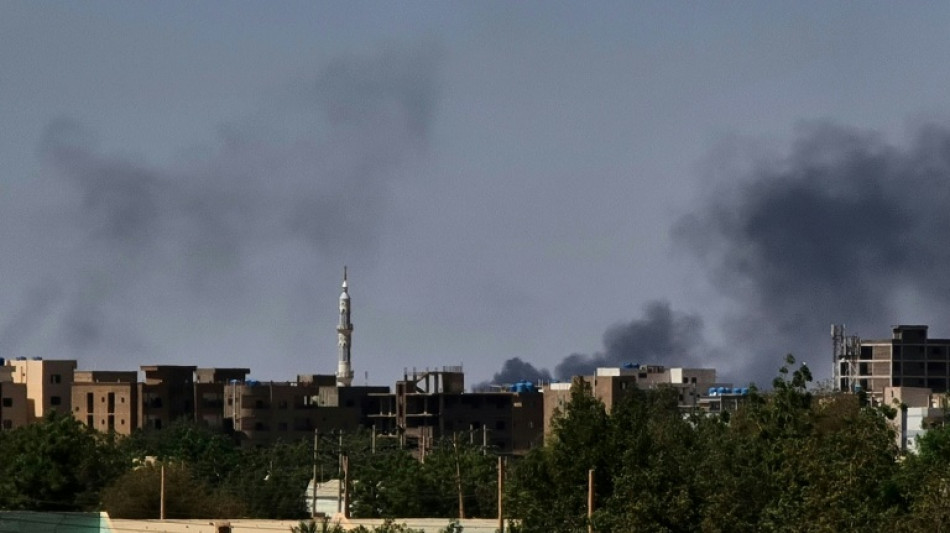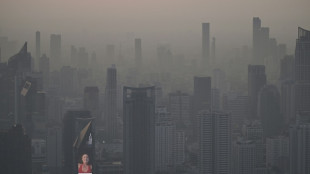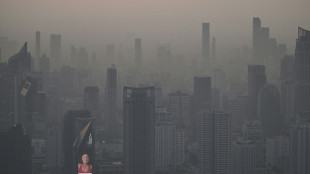

Warning of 'protracted' conflict as Sudan fighting rages
Air strikes and gunfire rocked the Sudanese capital Friday as fighting showed no signs of abating, despite the threat of renewed US sanctions and warnings of a "protracted" conflict.
Hundreds have died in nearly three weeks of fighting between forces of Sudan's de facto leader Abdel Fattah al-Burhan, who leads the regular army, and his deputy turned rival Mohamed Hamdan Daglo, who commands the paramilitary Rapid Support Forces (RSF).
Battles persisted a day after US President Joe Biden threatened to impose sanctions on those responsible for "threatening the peace, security, and stability of Sudan" and "undermining Sudan's democratic transition".
The impoverished northeast African country had already suffered under decades of sanctions during the rule of former autocrat Omar al-Bashir, ousted in 2019 following mass protests.
"The violence taking place in Sudan is a tragedy -- and it is a betrayal of the Sudanese people's clear demand for civilian government and a transition to democracy. It must end," Biden said.
Witnesses on Friday morning reported continued air strikes and clashes in various parts of the capital Khartoum amid diverging statements from the warring sides on truce efforts brokered by different external mediators.
The RSF has yet to respond following the announcement Wednesday of a seven-day truce brokered by neighbouring South Sudan and accepted by the army.
But early Friday, the paramilitary group said it was extending by only three days a previous truce brokered under US-Saudi mediation.
- 'Spillover challenges' -
Multiple truces have been agreed throughout the fighting, but none has been respected.
The conflict has killed about 700 people so far across Sudan, most of them in Khartoum and the western Darfur region, according to the Armed Conflict Location and Event Data Project.
US Director of National Intelligence Avril Haines on Thursday said Washington expected the conflict would continue for a long period of time.
The fighting was "likely to be protracted as both sides believe that they can win militarily, and have few incentives to come to the negotiating table", she told a Senate hearing.
"Both sides are seeking external sources of support, which, if successful, is likely to intensify the conflict and create a greater potential for spillover challenges in the region."
Haines, the country's top intelligence official, said the fighting had exacerbated already dire humanitarian conditions, "raising the spectre of massive refugee flows and aid needs in the region".
Nearly 450,000 civilians have already fled their homes since the fighting began, the International Organization for Migration said, including more than 115,000 who have sought refuge in neighbouring countries.
The UN refugee agency said it was preparing for an outflow of 860,000 people from Sudan, adding that $445 million would be needed to support them just through October.
"The needs are vast... If the crisis continues, peace and stability across the region could be at stake," Raouf Mazou, the UNHCR's assistant chief of operations, said Thursday.
- International mediation -
Even before the conflict broke out, some 15 million people -- a third of Sudan's population -- were in need of aid to stave off famine, according to UN estimates.
Mediation efforts have multiplied since the conflict began, with Egyptian Foreign Minister Sameh Shoukry saying Thursday he had spoken with both rival generals by phone.
The army said Wednesday it favoured those of the East African regional bloc IGAD, because it wanted "African solutions to the continent's issues".
Speaking in the Ethiopian capital Addis Ababa, an envoy of Burhan vowed that "shortly the government of Sudan is going to put an end to this rebellion", in reference to fighting by the RSF.
Dafaallah al-Haj, who has shuttled between neighbouring countries in recent days, urged international mediators to distinguish between the government as represented by the armed forces, and the "rebels", in reference to the paramilitaries.
In October 2021, Burhan and his then number-two Daglo jointly staged another coup that upended the country's fragile transition to civilian rule.
The two generals then engaged in a power struggle, most recently over the RSF's integration into the regular army, which has now flared into bloody violence.
C.Queeney--NG



